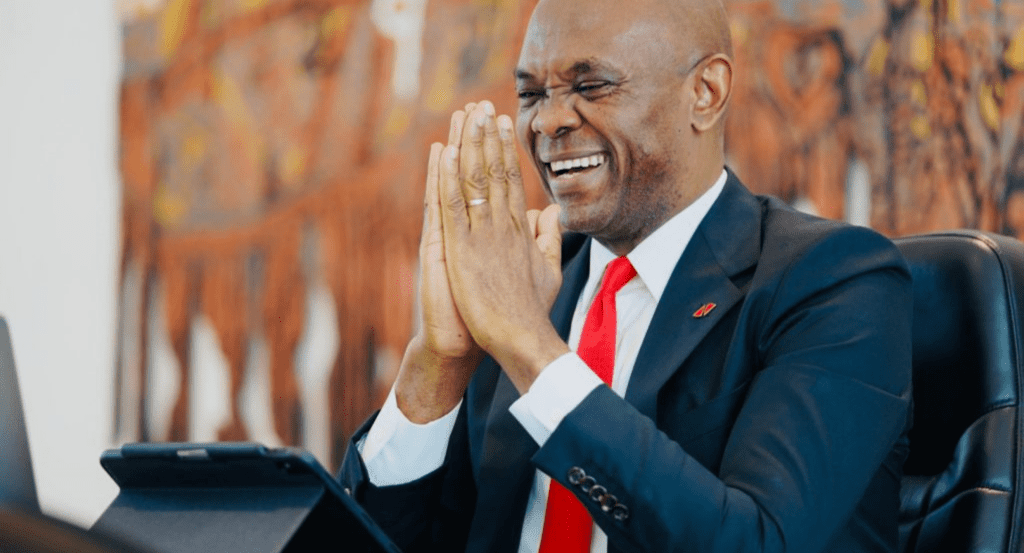Tony Elumelu Joins IMF Advisory Council on Entrepreneurship and Growth
The International Monetary Fund (IMF) advisory council has welcomed Tony Elumelu, the founder and group chairman of Heirs Holdings, as a new member. This announcement was made on Friday, highlighting Elumelu’s significant role in shaping global policies that drive entrepreneurship and private-sector-led economic transformation.
The IMF advisory council on entrepreneurship and growth, convened by Kristalina Georgieva, IMF’s managing director, comprises global business leaders, policymakers, and economists. The council’s mandate is to identify regulatory obstacles hindering entrepreneurship and propose policies that enhance resource allocation, foster innovation, and promote sustainable economic growth.
IMF Advisory Council’s Role in Economic Growth
The IMF advisory council plays a crucial role in global economic policymaking, bringing together key industry experts and thought leaders. Their primary responsibility is to design strategies that encourage private-sector investment, improve market efficiency, and stimulate economic development worldwide.
The council’s work focuses on:
- Removing barriers to entrepreneurship, ensuring businesses can thrive.
- Recommending policies that optimize resource allocation for maximum economic impact.
- Encouraging innovation, particularly in emerging economies.
As a leading advocate of Africapitalism, Tony Elumelu believes that Africa’s private sector must drive the continent’s development through long-term, strategic investments that generate both economic and social value.
Tony Elumelu’s Impact on Entrepreneurship
Elumelu’s appointment to the IMF advisory council is a recognition of his transformational impact on African entrepreneurship. Through the Tony Elumelu Foundation (TEF), he has empowered over 25,000 African entrepreneurs with funding, mentorship, and training since 2015.
His philosophy of Africapitalism—which promotes private sector-led growth—aligns with the IMF’s vision of leveraging entrepreneurship to achieve economic progress. His role on the council ensures that Africa’s entrepreneurial potential remains central to global economic discussions.
DON’T MISS THIS: Tesla’s European Sales Plummet Amid Rising EV Competition and Political Controversies
Who Else Is on the IMF Advisory Council?
The IMF advisory council consists of global leaders from diverse industries, including finance, technology, academia, and policymaking. Some of the distinguished members include:
- Ufuk Akcigit – Harberger Professor of Economics, University of Chicago
- Reema Bandar Al-Saud – Saudi Ambassador to the United States
- Marc Benioff – Chair, CEO, and Co-Founder of Salesforce
- Ana Botín – Executive Chair at Banco Santander
- Natarajan Chandrasekaran – Chairman of Tata Group
- Margherita Della Valle – CEO of Vodafone Group
- Robert Smith – Founder, Chairman, and CEO of Vista Equity Partners
- Federico Sturzenegger – Argentine Minister of Deregulation and State Transformation
These experts bring unique perspectives on entrepreneurship, economic policies, and financial regulations, working together to shape strategies that enhance global business environments.
Kristalina Georgieva on the IMF Advisory Council’s Mission
Speaking at the council’s inaugural meeting on March 26, Kristalina Georgieva emphasized the importance of creating an environment that fosters entrepreneurship, innovation, and economic productivity. She noted that strong private sector growth is essential for global economic stability.
Georgieva said, “The council brings together a group of leading thinkers and practitioners in business, finance, academia, and policymaking to share their views and experiences on how macroeconomic and financial policies can provide a supportive environment for innovation, entrepreneurship, and productivity.”
How the IMF Advisory Council Will Shape Economic Policies
The IMF advisory council aims to provide strategic recommendations that influence governments, central banks, and financial institutions worldwide. Their policy suggestions will focus on:
- Enhancing access to capital for small and medium-sized enterprises (SMEs).
- Creating regulatory frameworks that promote business growth.
- Encouraging sustainable investments in developing economies.
- Reducing bureaucratic barriers that hinder startup innovation.
With Tony Elumelu as a member, there will be an increased focus on Africa’s entrepreneurial landscape, ensuring that young business leaders on the continent receive global recognition and support.
What This Means for African Entrepreneurs
Elumelu’s appointment signals a major win for African entrepreneurs, as it places Africa’s private sector potential at the heart of global discussions. Through his advocacy, emerging business leaders across the continent could gain increased access to funding, mentorship, and policy support that accelerates their growth.
This also aligns with the mission of the Tony Elumelu Foundation, which continues to support African startups by providing:
- Seed funding to kickstart businesses.
- Mentorship programs that connect entrepreneurs with industry leaders.
- Training initiatives focused on business development and financial management.
With his influence at the IMF advisory council, Elumelu will push for economic policies that benefit African entrepreneurs, ensuring they play a key role in global economic growth.
Conclusion
The IMF advisory council plays a vital role in shaping economic policies that foster entrepreneurship and innovation. With Tony Elumelu’s appointment, Africa’s private sector potential is now firmly represented at the highest level of global economic decision-making.
As the council works on strategies to remove barriers to entrepreneurship, businesses worldwide—especially in developing economies—could benefit from policies that improve access to resources, stimulate innovation, and drive sustainable economic growth.
Elumelu’s commitment to Africapitalism ensures that African entrepreneurs remain part of the global economic transformation, making this a significant milestone for Africa’s business ecosystem.























